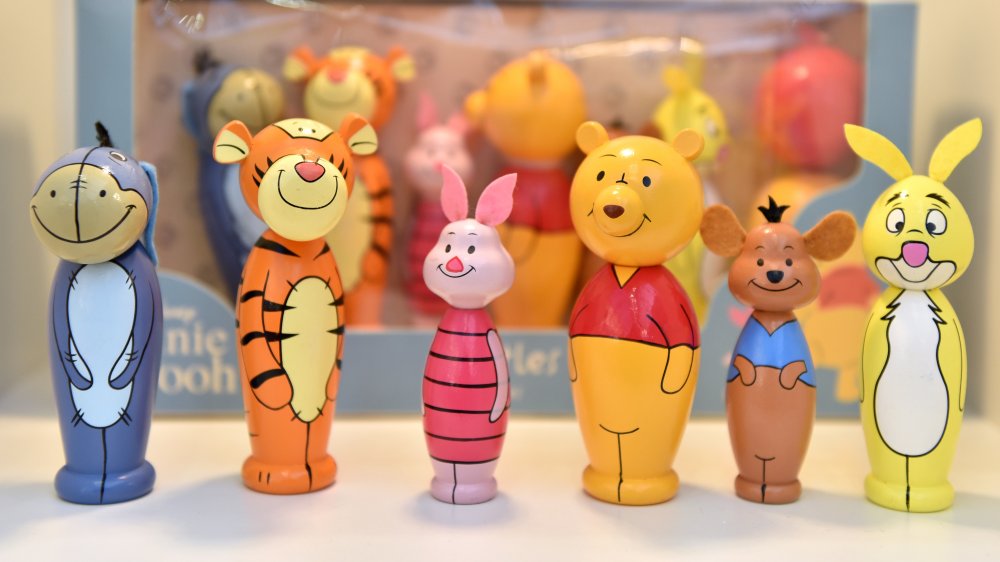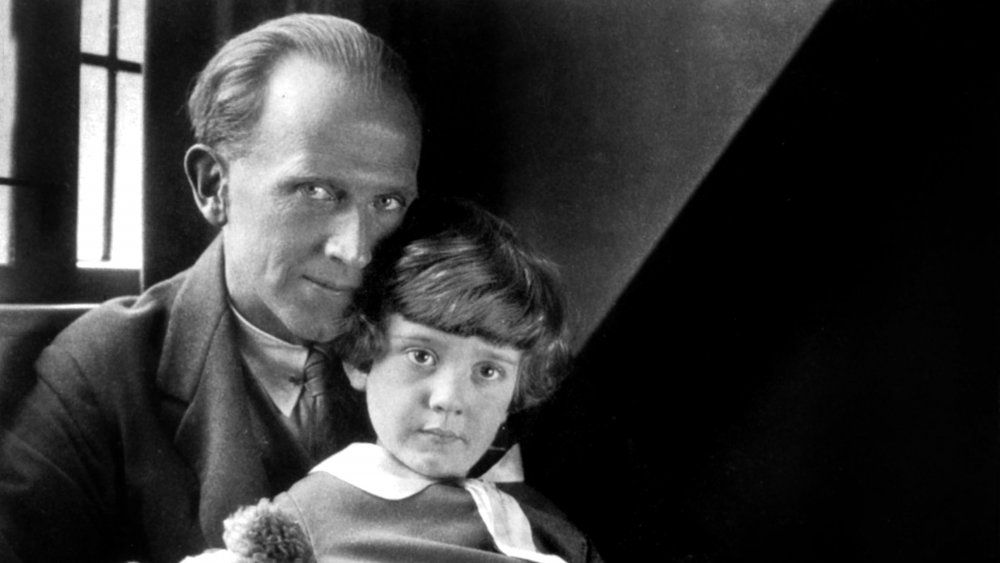What It Was Like To Grow Up With Winnie The Pooh
Being the inspiration for a children's book probably feels a lot like being a child star: You don't really understand what's going on until you're much older, and by then, the damage has been done. That was what it felt like for Christopher Robin Milne, the inspiration behind the beloved Winnie the Pooh stories, written by his father, A.A. Milne. The stories followed a boy named Christopher Robin and his toys' exploits as they roamed around the Hundred Acre Wood. It's a fun romp through an idyllic childhood, but the real Christopher Robin doesn't have many nostalgic feelings over it. According to Reader's Digest, he never liked the attention the books brought him. He even dropped the name Robin to further distance himself from the character.
Christopher first disliked the stories when he was sent to boarding school, per All That's Interesting. His classmates bullied him and constantly asked him where his teddy bear was. It didn't help that the book's drawings were based on Christopher. Boys in his school made fun of his appearance and made assumptions about his personality. By the time he became an adult, Christopher refused to have anything to do with Winnie the Pooh. To be fair, even his father soured on the books. A.A. never wanted to be known as a children's author; he only wrote them for a lark.
Christopher Milne was wounded while serving in the military during World War II, and after the war he had difficulty finding a job.
He did not keep Pooh's love in his heart forever
Even so, Christopher refused Winnie the Pooh's royalties. He hated his fame and felt that his father found success "by climbing on my infant shoulders," per Reader's Digest.
Huffington Post wrote that Christopher had a particular hatred of his father's poem "Vespers." The verses describes a child saying his nightly prayers. Most people find it adorable. But for Christopher, it was father dismissing childhood dreams and depicting children as narcissists. Harsh. To be clear, Christopher never accused his parents of abuse. He merely stated they tended to be absent or a little cold in the way most Edwardian era parents were. Huffington Post also relates that the elder Milne admitted that he was not overly fond of children in the first place.
Christopher's relationship with his parents never recovered, especially after he married his first cousin. When his father became ill, Christopher occasionally visited him at the farm near the fictional Hundred Acre Wood. But after his father died, Christopher never returned, not even upon the death of his mother. Christopher opened a bookstore with his wife, a choice his mother found odd because he'd be in contact with people who actually loved the books. In the end, Milne said he came to terms with his relationship with Pooh, especially when he realized how much joy it gave children. And in the end, he even said he hated the commercialization of the beloved bear.

